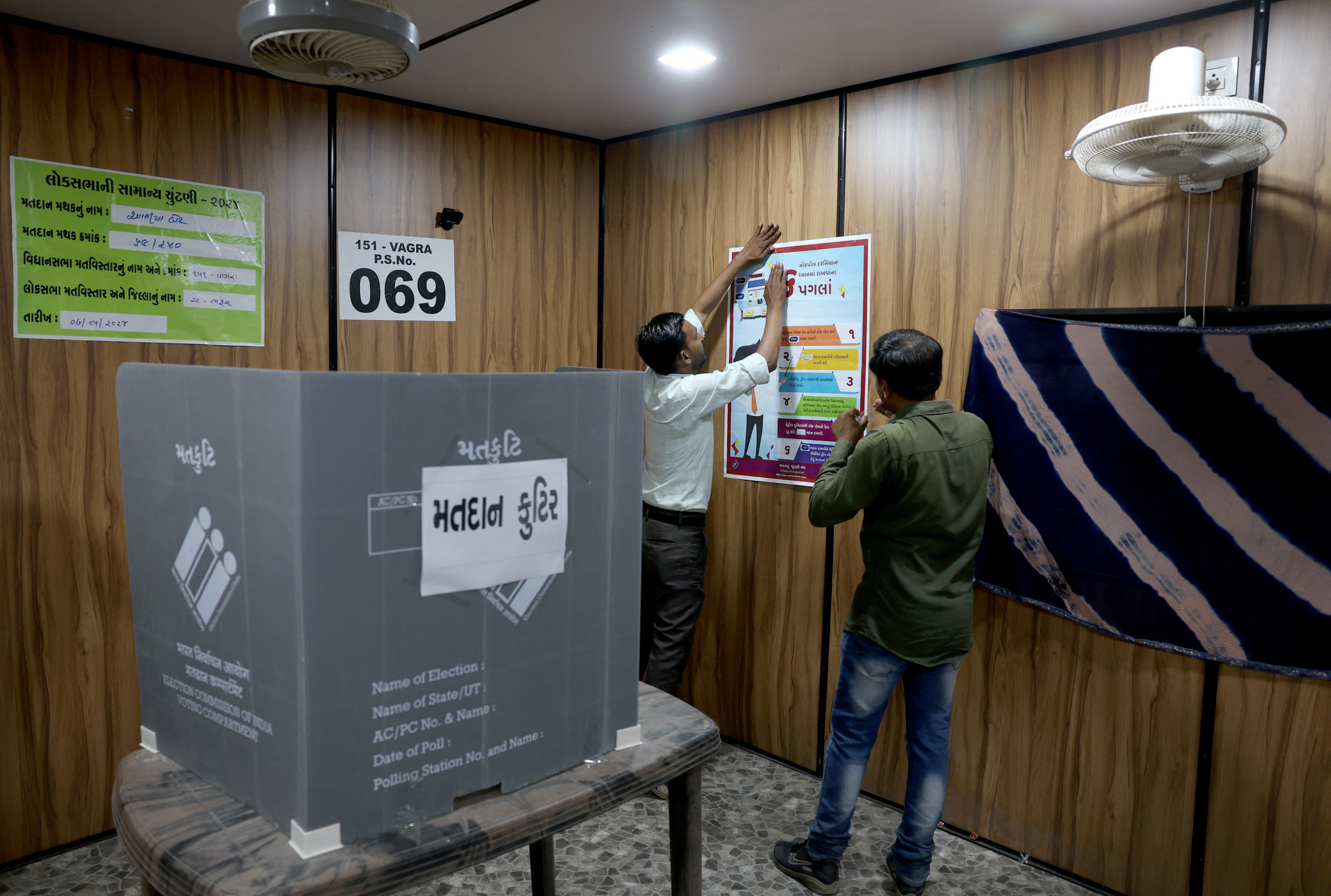

The History of Homework: Why Was it Invented and Who Was Behind It?
- By Emily Summers
- February 14, 2020
Homework is long-standing education staple, one that many students hate with a fiery passion. We can’t really blame them, especially if it’s a primary source of stress that can result in headaches, exhaustion, and lack of sleep.
It’s not uncommon for students, parents, and even some teachers to complain about bringing assignments home. Yet, for millions of children around the world, homework is still a huge part of their daily lives as students — even if it continues to be one of their biggest causes of stress and unrest.
It makes one wonder, who in their right mind would invent such a thing as homework?
Who Invented Homework?
Pliny the younger: when in ancient rome, horace mann: the father of modern homework, the history of homework in america, 1900s: anti-homework sentiment & homework bans, 1930: homework as child labor, early-to-mid 20th century: homework and the progressive era, the cold war: homework starts heating up, 1980s: homework in a nation at risk, early 21 st century, state of homework today: why is it being questioned, should students get homework pros of cons of bringing school work home.

Online, there are many articles that point to Roberto Nevilis as the first educator to give his students homework. He created it as a way to punish his lazy students and ensure that they fully learned their lessons. However, these pieces of information mostly come from obscure educational blogs or forum websites with questionable claims. No credible news source or website has ever mentioned the name Roberto Nevilis as the person who invented homework . In fact, it’s possible that Nevilis never even existed.
As we’re not entirely sure who to credit for creating the bane of students’ existence and the reasons why homework was invented, we can use a few historical trivia to help narrow down our search.
Mentions of the term “homework” date back to as early as ancient Rome. In I century AD, Pliny the Younger , an oratory teacher, supposedly invented homework by asking his followers to practice public speaking at home. It was to help them become more confident and fluent in their speeches. But some would argue that the assignment wasn’t exactly the type of written work that students have to do at home nowadays. Only introverted individuals with a fear of public speaking would find it difficult and stressful.
It’s also safe to argue that since homework is an integral part of education, it’s probable that it has existed since the dawn of learning, like a beacon of light to all those helpless and lost (or to cast darkness on those who despise it). This means that Romans, Enlightenment philosophers, and Middle Age monks all read, memorized, and sang pieces well before homework was given any definition. It’s harder to play the blame game this way unless you want to point your finger at Horace Mann.
In the 19 th century, Horace Mann , a politician and educational reformer had a strong interest in the compulsory public education system of Germany as a newly unified nation-state. Pupils attending the Volksschulen or “People’s Schools” were given mandatory assignments that they needed to complete at home during their own time. This requirement emphasized the state’s power over individuals at a time when nationalists such as Johann Gottlieb Fichte were rallying support for a unified German state. Basically, the state used homework as an element of power play.
Despite its political origins, the system of bringing school assignments home spread across Europe and eventually found their way to Horace Mann, who was in Prussia at that time. He brought the system home with him to America where homework became a daily activity in the lives of students.
Despite homework being a near-universal part of the American educational experience today, it hasn’t always been universally accepted. Take a look at its turbulent history in America.
In 1901, just a few decades after Horace Mann introduced the concept to Americans, homework was banned in the Pacific state of California . The ban affected students younger than 15 years old and stayed in effect until 1917.
Around the same time, prominent publications such as The New York Times and Ladies’ Home Journal published statements from medical professionals and parents who stated that homework was detrimental to children’s health.
In 1930, the American Child Health Association declared homework as a type of child labor . Since laws against child labor had been passed recently during that time, the proclamation painted homework as unacceptable educational practice, making everyone wonder why homework was invented in the first place.
However, it’s keen to note that one of the reasons why homework was so frowned upon was because children were needed to help out with household chores (a.k.a. a less intensive and more socially acceptable form of child labor).
During the progressive education reforms of the late 19 th and early 20 th centuries, educators started looking for ways to make homework assignments more personal and relevant to the interests of individual students. Maybe this was how immortal essay topics such as “What I Want to Be When I Grow Up” and “What I Did During My Summer Vacation” were born.
After World War II, the Cold War heated up rivalries between the U.S. and Russia. Sputnik 1’s launch in 1957 intensified the competition between Americans and Russians – including their youth.
Education authorities in the U.S. decided that implementing rigorous homework to American students of all ages was the best way to ensure that they were always one step ahead of their Russian counterparts, especially in the competitive fields of Math and Science.
In 1986, the U.S. Department of Education’s pamphlet, “What Works,” included homework as one of the effective strategies to boost the quality of education. This came three years after the National Commission on Excellence in Education published “ Nation at Risk: The Imperative for Educational Reform .” The landmark report lambasted the state of America’s schools, calling for reforms to right the alarming direction that public education was headed.
Today, many educators, students, parents, and other concerned citizens have once again started questioning why homework was invented and if it’s still valuable.
Homework now is facing major backlash around the world. With more than 60% of high school and college students seeking counselling for conditions such as clinical depression and anxiety, all of which are brought about by school, it’s safe to say that American students are more stressed out than they should be.
After sitting through hours at school, they leave only to start on a mountain pile of homework. Not only does it take up a large chunk of time that they can otherwise spend on their hobbies and interests, it also stops them from getting enough sleep. This can lead to students experiencing physical health problems, a lack of balance in their lives, and alienation from their peers and society in general.
Is homework important and necessary ? Or is it doing more harm than good? Here some key advantages and disadvantages to consider.
- It encourages the discipline of practice
Using the same formula or memorizing the same information over and over can be difficult and boring, but it reinforces the practice of discipline. To master a skill, repetition is often needed. By completing homework every night, specifically with difficult subjects, the concepts become easier to understand, helping students polish their skills and achieve their life goals.
- It teaches students to manage their time
Homework goes beyond just completing tasks. It encourages children to develop their skills in time management as schedules need to be organized to ensure that all tasks can be completed within the day.
- It provides more time for students to complete their learning process
The time allotted for each subject in school is often limited to 1 hour or less per day. That’s not enough time for students to grasp the material and core concepts of each subject. By creating specific homework assignments, it becomes possible for students to make up for the deficiencies in time.
- It discourages creative endeavors
If a student spends 3-5 hours a day on homework, those are 3-5 hours that they can’t use to pursue creative passions. Students might like to read leisurely or take up new hobbies but homework takes away their time from painting, learning an instrument, or developing new skills.
- Homework is typically geared toward benchmarks
Teachers often assign homework to improve students’ test scores. Although this can result in positive outcomes such as better study habits, the fact is that when students feel tired, they won’t likely absorb as much information. Their stress levels will go up and they’ll feel the curriculum burnout.
- No evidence that homework creates improvements
Research shows that homework doesn’t improve academic performance ; it can even make it worse. Homework creates a negative attitude towards schooling and education, making students dread going to their classes. If they don’t like attending their lessons, they will be unmotivated to listen to the discussions.
With all of the struggles that students face each day due to homework, it’s puzzling to understand why it was even invented. However, whether you think it’s helpful or not, just because the concept has survived for centuries doesn’t mean that it has to stay within the educational system.
Not all students care about the history of homework, but they all do care about the future of their educational pursuits. Maybe one day, homework will be fully removed from the curriculum of schools all over the world but until that day comes, students will have to burn the midnight oil to pass their requirements on time and hopefully achieve their own versions of success.
About the Author
Emily summers.

What Is Fundraising and How Does It Work

Why Choosing Electrician Training Could Be Your Best Move

Tips for balancing technology and your child’s growth

Male and Female Cannabis Flowers Identifying the Differences

Debunking the Myth of Roberto Nevilis: Who Really Invented Homework?

Is the D Important in Pharmacy? Why Pharm.D or RPh Degrees Shouldn’t Matter

How to Email a Professor: Guide on How to Start and End an Email Conversation

Everything You Need to Know About Getting a Post-Secondary Education

Grammar Corner: What’s The Difference Between Analysis vs Analyses?

History Cooperative
The Homework Dilemma: Who Invented Homework?
The inventor of homework may be unknown, but its evolution reflects contributions from educators, philosophers, and students. Homework reinforces learning, fosters discipline, and prepares students for the future, spanning from ancient civilizations to modern education. Ongoing debates probe its balance, efficacy, equity, and accessibility, prompting innovative alternatives like project-based and personalized learning. As education evolves, the enigma of homework endures.
Table of Contents
Who Invented Homework?
While historical records don’t provide a definitive answer regarding the inventor of homework in the modern sense, two prominent figures, Roberto Nevelis of Venice and Horace Mann, are often linked to the concept’s early development.
Roberto Nevelis of Venice: A Mythical Innovator?
Roberto Nevelis, a Venetian educator from the 16th century, is frequently credited with the invention of homework. The story goes that Nevelis assigned tasks to his students outside regular classroom hours to reinforce their learning—a practice that aligns with the essence of homework. However, the historical evidence supporting Nevelis as the inventor of homework is rather elusive, leaving room for skepticism.
While Nevelis’s role remains somewhat mythical, his association with homework highlights the early recognition of the concept’s educational value.
Horace Mann: Shaping the American Educational Landscape
Horace Mann, often regarded as the “Father of American Education,” made significant contributions to the American public school system in the 19th century. Though he may not have single-handedly invented homework, his educational reforms played a crucial role in its widespread adoption.
Mann’s vision for education emphasized discipline and rigor, which included assigning tasks to be completed outside of the classroom. While he did not create homework in the traditional sense, his influence on the American education system paved the way for its integration.
The invention of homework was driven by several educational objectives. It aimed to reinforce classroom learning, ensuring knowledge retention and skill development. Homework also served as a means to promote self-discipline and responsibility among students, fostering valuable study habits and time management skills.
Why Was Homework Invented?
The invention of homework was not a random educational practice but rather a deliberate strategy with several essential objectives in mind.
Reinforcing Classroom Learning
Foremost among these objectives was the need to reinforce classroom learning. When students leave the classroom, the goal is for them to retain and apply the knowledge they have acquired during their lessons. Homework emerged as a powerful tool for achieving this goal. It provided students with a structured platform to revisit the day’s lessons, practice what they had learned, and solidify their understanding.
Homework assignments often mirrored classroom activities, allowing students to extend their learning beyond the confines of school hours. Through the repetition of exercises and tasks related to the curriculum, students could deepen their comprehension and mastery of various subjects.
Fostering Self-Discipline and Responsibility
Another significant objective behind the creation of homework was the promotion of self-discipline and responsibility among students. Education has always been about more than just the acquisition of knowledge; it also involves the development of life skills and habits that prepare individuals for future challenges.
By assigning tasks to be completed independently at home, educators aimed to instill valuable study habits and time management skills. Students were expected to take ownership of their learning, manage their time effectively, and meet deadlines—a set of skills that have enduring relevance in contemporary education and beyond.
Homework encouraged students to become proactive in their educational journey. It taught them the importance of accountability and the satisfaction of completing tasks on their own. These life skills would prove invaluable in their future endeavors, both academically and in the broader context of their lives.
When Was Homework Invented?
The roots of homework stretch deep into the annals of history, tracing its origins to ancient civilizations and early educational practices. While it has undergone significant evolution over the centuries, the concept of extending learning beyond the classroom has always been an integral part of education.
Earliest Origins of Homework and Early Educational Practices
The idea of homework, in its most rudimentary form, can be traced back to the earliest human civilizations. In ancient Egypt , for instance, students were tasked with hieroglyphic writing exercises. These exercises served as a precursor to modern homework, as they required students to practice and reinforce their understanding of written language—an essential skill for communication and record-keeping in that era.
In ancient Greece , luminaries like Plato and Aristotle advocated for the use of written exercises as a tool for intellectual development. They recognized the value of practice in enhancing one’s knowledge and skills, laying the foundation for a more systematic approach to homework.
The ancient Romans also played a pivotal role in the early development of homework. Young Roman students were expected to complete assignments at home, with a particular focus on subjects like mathematics and literature. These assignments were designed to consolidate their classroom learning, emphasizing the importance of practice in mastering various disciplines.
READ MORE: Who Invented Math? The History of Mathematics
The practice of assigning work to be done outside of regular school hours continued to evolve through various historical periods. As societies advanced, so did the complexity and diversity of homework tasks, reflecting the changing needs and priorities of education.
The Influence of Educational Philosophers
While the roots of homework extend to ancient times, the ideas of renowned educational philosophers in later centuries further contributed to its development. John Locke, an influential thinker of the Enlightenment era, believed in a gradual and cumulative approach to learning. He emphasized the importance of students revisiting topics through repetition and practice, a concept that aligns with the principles of homework.
Jean-Jacques Rousseau, another prominent philosopher, stressed the significance of self-directed learning. Rousseau’s ideas encouraged the development of independent study habits and a personalized approach to education—a philosophy that resonates with modern concepts of homework.
Homework in the American Public School System
The American public school system has played a pivotal role in the widespread adoption and popularization of homework. To understand the significance of homework in modern education, it’s essential to delve into its history and evolution within the United States.
History and Evolution of Homework in the United States
The late 19th century marked a significant turning point for homework in the United States. During this period, influenced by educational reforms and the growing need for standardized curricula, homework assignments began to gain prominence in American schools.
Educational reformers and policymakers recognized the value of homework as a tool for reinforcing classroom learning. They believed that assigning tasks for students to complete outside of regular school hours would help ensure that knowledge was retained and skills were honed. This approach aligned with the broader trends in education at the time, which aimed to provide a more structured and systematic approach to learning.
As the American public school system continued to evolve, homework assignments became a common practice in classrooms across the nation. The standardization of curricula and the formalization of education contributed to the integration of homework into the learning process. This marked a significant departure from earlier educational practices, reflecting a shift toward more structured and comprehensive learning experiences.
The incorporation of homework into the American education system not only reinforced classroom learning but also fostered self-discipline and responsibility among students. It encouraged them to take ownership of their educational journey and develop valuable study habits and time management skills—a legacy that continues to influence modern pedagogy.
Controversies Around Homework
Despite its longstanding presence in education, homework has not been immune to controversy and debate. While many view it as a valuable educational tool, others question its effectiveness and impact on students’ well-being.
The Homework Debate
One of the central controversies revolves around the amount of homework assigned to students. Critics argue that excessive homework loads can lead to stress, sleep deprivation, and a lack of free time for students. The debate often centers on striking the right balance between homework and other aspects of a student’s life, including extracurricular activities, family time, and rest.
Homework’s Efficacy
Another contentious issue pertains to the efficacy of homework in enhancing learning outcomes. Some studies suggest that moderate amounts of homework can reinforce classroom learning and improve academic performance. However, others question whether all homework assignments contribute equally to learning or whether some may be more beneficial than others. The effectiveness of homework can vary depending on factors such as the student’s grade level, the subject matter, and the quality of the assignment.
Equity and Accessibility
Homework can also raise concerns related to equity and accessibility. Students from disadvantaged backgrounds may have limited access to resources and support at home, potentially putting them at a disadvantage when it comes to completing homework assignments. This disparity has prompted discussions about the role of homework in perpetuating educational inequalities and how schools can address these disparities.
Alternative Approaches to Learning
In response to the controversies surrounding homework, educators and researchers have explored alternative approaches to learning. These approaches aim to strike a balance between reinforcing classroom learning and promoting holistic student well-being. Some alternatives include:
Project-Based Learning
Project-based learning emphasizes hands-on, collaborative projects that allow students to apply their knowledge to real-world problems. This approach shifts the focus from traditional homework assignments to engaging, practical learning experiences.
Flipped Classrooms
Flipped classrooms reverse the traditional teaching model. Students learn new material at home through video lectures or readings and then use class time for interactive discussions and activities. This approach reduces the need for traditional homework while promoting active learning.
Personalized Learning
Personalized learning tailors instruction to individual students’ needs, allowing them to progress at their own pace. This approach minimizes the need for one-size-fits-all homework assignments and instead focuses on targeted learning experiences.
The Ongoing Conversation
The controversies surrounding homework highlight the need for an ongoing conversation about its role in education. Striking the right balance between reinforcing learning and addressing students’ well-being remains a complex challenge. As educators, parents, and researchers continue to explore innovative approaches to learning, the role of homework in the modern educational landscape continues to evolve. Ultimately, the goal is to provide students with the most effective and equitable learning experiences possible.
Unpacking the Homework Enigma
Homework, without a single inventor, has evolved through educators, philosophers, and students. It reinforces learning, fosters discipline and prepares students. From ancient times to modern education, it upholds timeless values. Yet, controversies arise—debates on balance, efficacy, equity, and accessibility persist. Innovative alternatives like project-based and personalized learning emerge. Homework’s role evolves with education.
How to Cite this Article
There are three different ways you can cite this article.
1. To cite this article in an academic-style article or paper , use:
<a href=" https://historycooperative.org/who-invented-homework/ ">The Homework Dilemma: Who Invented Homework?</a>
Leave a Comment Cancel reply

Who Invented Homework? A Big Question Answered with Facts

Crystal Bourque

Delving into the intriguing history of education, one of the most pondered questions arises: Who invented homework?
Love it or hate it, homework is part of student life.
But what’s the purpose of completing these tasks and assignments? And who would create an education system that makes students complete work outside the classroom?
This post contains everything you’ve ever wanted to know about homework. So keep reading! You’ll discover the answer to the big question: who invented homework?
Who Invented Homework?
The myth of roberto nevilis: who is he, the origins of homework, a history of homework in the united states, 5 facts about homework, types of homework.
- What’s the Purpose of Homework?
- Homework Pros
- Homework Cons
When, How, and Why was Homework Invented?

Daniel Jedzura/Shutterstock.com
To ensure we cover the basics (and more), let’s explore when, how, and why was homework invented.
As a bonus, we’ll also cover who invented homework. So get ready because the answer might surprise you!
It’s challenging to pinpoint the exact person responsible for the invention of homework.
For example, Medieval Monks would work on memorization and practice singing. Ancient philosophers would read and develop their teachings outside the classroom. While this might not sound like homework in the traditional form we know today, one could argue that these methods helped to form the basic structure and format.
So let’s turn to recorded history to try and identify who invented homework and when homework was invented.
Pliny the Younger

Credit: laphamsquarterly.org
Mention of homework appears in the writings of Pliny the Younger, meaning we can trace the term ‘homework’ back to ancient Rome. Pliny the Younger (61—112 CE) was an oratory teacher, and often told his students to practice their public speaking outside class.
Pliny believed that the repetition and practice of speech would help students gain confidence in their speaking abilities.
Johann Gottlieb Fichte

Credit: inlibris.com
Before the idea of homework came to the United States, Germany’s newly formed nation-state had been giving students homework for years.
The roots of homework extend to ancient times, but it wasn’t until German Philosopher Johann Gottlieb Fichte (1762—1814) helped to develop the Volksschulen (People’s Schools) that homework became mandatory.
Fichte believed that the state needed to hold power over individuals to create a unified Germany. A way to assert control over people meant that students attending the Volksshulen were required to complete assignments at home on their own time.
As a result, some people credit Fichte for being the inventor of homework.
Horace Mann

Credit: commons.wikimedia.org
The idea of homework spread across Europe throughout the 19th century.
So who created homework in the United States?
The history of education and homework now moves to Horace Mann (1796—1859), an American educational reformer, spent some time in Prussia. There, he learned more about Germany’s Volksshulen, forms of education , and homework practices.
Mann liked what he saw and brought this system back to America. As a result, homework rapidly became a common factor in students’ lives across the country.

Credit: medium.com
If you’ve ever felt curious about who invented homework, a quick online search might direct you to a man named Roberto Nevilis, a teacher in Venice, Italy.
As the story goes, Nevilis invented homework in 1905 (or 1095) to punish students who didn’t demonstrate a good understanding of the lessons taught during class.
This teaching technique supposedly spread to the rest of Europe before reaching North America.
Unfortunately, there’s little truth to this story. If you dig a little deeper, you’ll find that these online sources lack credible sources to back up this myth as fact.
In 1905, the Roman Empire turned its attention to the First Crusade. No one had time to spare on formalizing education, and classrooms didn’t even exist. So how could Nevilis spread the idea of homework when education remained so informal?
And when you jump to 1901, you’ll discover that the government of California passed a law banning homework for children under fifteen. Nevilis couldn’t have invented homework in 1905 if this law had already reached the United States in 1901.

Inside Creative House/Shutterstock.com
When it comes to the origins of homework, looking at the past shows us that there isn’t one person who created homework. Instead, examining the facts shows us that several people helped to bring the idea of homework into Europe and then the United States.
In addition, the idea of homework extends beyond what historians have discovered. After all, the concept of learning the necessary skills human beings need to survive has existed since the dawn of man.
More than 100 years have come and gone since Horace Mann introduced homework to the school system in the United States.
Therefore, it’s not strange to think that the concept of homework has changed, along with our people and culture.
In short, homework hasn’t always been considered acceptable. Let’s dive into the history or background of homework to learn why.
Homework is Banned! (The 1900s)
Important publications of the time, including the Ladies’ Home Journal and The New York Times, published articles on the negative impacts homework had on American children’s health and well-being.
As a result, California banned homework for children under fifteen in 1901. This law, however, changed again about a decade later (1917).
Children Needed at Home (The 1930s)
Formed in 1923, The American Child Health Association (ACHA) aimed to decrease the infant mortality rate and better support the health and development of the American child.
By the 1930s, ACHA deemed homework a form of child labor. Since the government recently passed laws against child labor , it became difficult to justify homework assignments. College students, however, could still receive homework tasks as part of their formal schooling.

Studio Romantic/Shutterstock.com
A Shift in Ideas (The 1940s—1950s)
During the early to mid-1900s, the United States entered the Progressive Era. As a result, the country reformed its public education system to help improve students’ learning.
Homework became a part of everyday life again. However, this time, the reformed curriculum required teachers to make the assignments more personal.
As a result, American students would write essays on summer vacations and winter breaks, participate in ‘show and tell,’ and more.
These types of assignments still exist today!
Homework Today (The 2000s)
The focus of American education shifted again when the US Department of Education was founded in 1979, aiming to uplevel education in the country by, among other things, prohibiting discrimination ensuring equal access, and highlighting important educational issues.
In 2022, the controversial nature of homework in public schools and formal education is once again a hot topic of discussion in many classrooms.
According to one study , more than 60% of college and high school students deal with mental health issues like depression and anxiety due to homework. In addition, the large number of assignments given to students takes away the time students spend on other interests and hobbies. Homework also negatively impacts sleep.
As a result, some schools have implemented a ban or limit on the amount of homework assigned to students.
Test your knowledge and check out these other facts about homework:
- Horace Mann is also known as the ‘father’ of the modern school system and the educational process that we know today (read more about Who Invented School ).
- With a bit of practice, homework can improve oratory and writing skills. Both are important in a student’s life at all stages.
- Homework can replace studying. Completing regular assignments reduces the time needed to prepare for tests.
- Homework is here to stay. It doesn’t look like teachers will stop assigning homework any time soon. However, the type and quantity of homework given seem to be shifting to accommodate the modern student’s needs.
- The optimal length of time students should spend on homework is one to two hours. Students who spent one to two hours on homework per day scored higher test results.
- So, while completing assignments outside of school hours may be beneficial, spending, for example, a day on homework is not ideal.
Explore how the Findmykids app can complement your child’s school routine. With features designed to ensure their safety and provide peace of mind, it’s a valuable tool for parents looking to stay connected with their children throughout the day. Download now and stay informed about your child’s whereabouts during their academic journey.

Ground Picture/Shutterstock.com
The U.S. Department of Education provides teachers with plenty of information and resources to help students with homework.
In general, teachers give students homework that requires them to employ four strategies. The four types of homework types include:
- Practice: To help students master a specific skill, teachers will assign homework that requires them to repeat the particular skill. For example, students must solve a series of math problems.
- Preparation: This type of homework introduces students to the material they will learn in the future. An example of preparatory homework is assigning students a chapter to read before discussing the contents in class the next day.
- Extension: When a teacher wants to get students to apply what they’ve learned but create a challenge, this type of homework is assigned. It helps to boost problem-solving skills. For example, using a textbook to find the answer to a question gets students to problem-solve differently.
- Integration: To solidify the student learning experience , teachers will create a task that requires the use of many different skills. An example of integration is a book report. Completing integration homework assignments helps students learn how to be organized, plan, strategize, and solve problems on their own. Encouraging effective study habits is a key idea behind homework, too.
Ultimately, the type of homework students receive should have a purpose, be focused and clear, and challenge students to problem solve while integrating lessons learned.
What’s the Purpose of Homework?

LightField Studios/Shutterstock.com
Homework aims to ensure individual students understand the information they learn in class. It also helps teachers to assess a student’s progress and identify strengths and weaknesses.
For example, school teachers use different types of homework like book reports, essays, math problems, and more to help students demonstrate their understanding of the lessons learned.
Does Homework Improve the Quality of Education?
Homework is a controversial topic today. Educators, parents, and even students often question whether homework is beneficial in improving the quality of education.
Let’s explore the pros and cons of homework to try and determine whether homework improves the quality of education in schools.
Homework Pros:
- Time Management Skills : Assigning homework with a due date helps students to develop a schedule to ensure they complete tasks on time. Personal responsibility amongst students is thereby promoted.
- More Time to Learn : Students encounter plenty of distractions at school. It’s also challenging for students to grasp the material in an hour or less. Assigning homework provides the student with the opportunity to understand the material.
- Improves Research Skills : Some homework assignments require students to seek out information. Through homework, students learn where to seek out good, reliable sources.
Homework Cons:
- Reduced Physical Activity : Homework requires students to sit at a desk for long periods. Lack of movement decreases the amount of physical activity, often because teachers assign students so much homework that they don’t have time for anything else. Time for students can get almost totally taken up with out-of-school assignments.
- Stuck on an Assignment: A student often gets stuck on an assignment. Whether they can’t find information or the correct solution, students often don’t have help from parents and require further support from a teacher. For underperforming students, especially, this can have a negative impact on their confidence and overall educational experience.
- Increases Stress : One of the results of getting stuck on an assignment is that it increases stress and anxiety. Too much homework hurts a child’s mental health, preventing them from learning and understanding the material.
Some research shows that homework doesn’t provide educational benefits or improve performance, and can lead to a decline in physical activities. These studies counter that the potential effectiveness of homework is undermined by its negative impact on students.
However, research also shows that homework benefits students—provided teachers don’t give them too much. Here’s a video from Duke Today that highlights a study on the very topic.
Homework Today
The question of “Who Invented Homework?” delves into the historical evolution of academic practices, shedding light on its significance in fostering responsibility among students and contributing to academic progress. While supported by education experts, homework’s role as a pivotal aspect of academic life remains a subject of debate, often criticized as a significant source of stress. Nonetheless, when balanced with extracurricular activities and integrated seamlessly into the learning process, homework continues to shape and refine students’ educational journeys.
Maybe one day, students won’t need to submit assignments or complete tasks at home. But until then, many students understand the benefits of completing homework as it helps them further their education and achieve future career goals.
Before you go, here’s one more question: how do you feel about homework? Do you think teachers assign too little or too much? Get involved and start a discussion in the comments!

Elena Kharichkina/Shutterstock.com
Who invented homework and why?
The creation of homework can be traced back to the Ancient Roman Pliny the Younger, a teacher of oratory—he is generally credited as being the father of homework! Pliny the Younger asked his students to practice outside of class to help them build confidence in their speaking skills.
Who invented homework as a punishment?
There’s a myth that the Italian educator Roberto Nevilis first used homework as a means of punishing his students in the early 20th century—although this has now been widely discredited, and the story of the Italian teacher is regarded as a myth.
Why did homework stop being a punishment?
There are several reasons that homework ceased being a form of punishment. For example, the introduction of child labor laws in the early twentieth century meant that the California education department banned giving homework to children under the age of fifteen for a time. Further, throughout the 1940s and 1950s, there was a growing emphasis on enhancing students’ learning, making homework assignments more personal, and nurturing growth, rather than being used as a form of punishment.
The picture on the front page: Evgeny Atamanenko/Shutterstock.com

Since the founding of their first school, the Waldorf teaching method has won over a…

Lockdown left our children with no other option other than remote education. Now that schools…

An aggressive child is not uncommon in the modern world. Unfortunately, for many parents this…
Subscribe now!
Glad you've joined us🎉🎉.
We sent you SMS, for complete subscription please reply.
You are using an outdated browser. Please upgrade your browser or activate Google Chrome Frame to improve your experience.

Wonder of the Day #1385
Why Do We Have Homework?

SCIENCE — Health and Fitness
Have You Ever Wondered...
- Why do we have homework?
- What are the benefits of homework?
- Is there such a thing as too much homework?
- classroom ,
- education ,
- knowledge ,
- mathematics ,
- prioritization ,
- repetition ,
- responsibility ,
- time management ,
- Classroom ,
- Education ,
- Knowledge ,
- Mathematics ,
- Prioritization ,
- Repetition ,
- Responsibility ,
- Time Management
Today’s Wonder of the Day was inspired by Nicolas from fort lauderdale, FL. Nicolas Wonders , “ Who invented homework? ” Thanks for WONDERing with us, Nicolas!
What has eight letters and strikes fear into the hearts of students around the world? No, it's not broccoli, but that was a good guess! Give up? HOMEWORK !
Did you just gasp in fear and anguish ? We're sorry, but homework is a fact of life and it's time we took a closer look at it. Even though it might get in the way of playing outside or watching your favorite television show, it's necessary and, believe it or not, good for you!
Homework creates a bridge between school and home. Parents rarely get to spend much time with you while you're at school. Homework allows them to keep up with what you're doing in your classes on a daily basis. But you don't have homework purely for your parents' benefit . It's good for you, too!
Homework can help you become a better student in several different ways. First of all, homework given in advance of a particular subject can help you make the most of your classroom discussion time. For example, before beginning a discussion of a complex period in history , it can be very helpful to read background information as homework the night before.
Homework also gives you valuable practice with what you've learned in the classroom. Often, the brief period of time you have during class to learn something new is simply not enough. Repeating classroom concepts at home helps to cement in your mind the things you learned.
For example, you've probably experienced the value of homework when it comes to mathematics . A new concept explained in class might seem foreign at first. With repetition via homework, however, you reinforce what you learned in class and it sticks with you. Without homework, a lot of classroom time would be wasted with repetition that could more easily be done outside the classroom.
In these ways, homework expands upon what is done during the day in the classroom. Your overall educational experience is better, because homework helps you to gain and retain more knowledge than would be possible with only classroom work. As you learn more, you know more and you achieve more…and you have homework to thank!
Homework teaches lessons beyond just what's taught in the classroom, too. Bringing homework home, completing it correctly, and turning it in promptly teaches a host of other important life skills, from time management and responsibility to organization and prioritization .
Despite these benefits found by researchers, the topics of who should receive homework and how much homework are hotly debated among educators and researchers. In one study , researchers found that academic gains from homework increased as grade level increased, suggesting homework is more beneficial for older students. Some researchers have found that too much homework can lower or cancel its benefits and become counterproductive , because students become burned out.
How much is too much? That depends upon many complex factors, including the individual abilities of the child, other demands upon time, such as sports, part-time jobs, family responsibilities, and types of classes. If you feel overburdened by homework, the best thing you can do is to open a dialog with your teacher. Be open and honest about your feelings regarding homework and work with your teacher to strike a reasonable balance that helps you achieve your educational goals.
Wonder What's Next?
Tomorrow’s Wonder of the Day feels just like home!
We hope today's Wonder of the Day didn't feel like homework! Be sure to check out the following activities with a friend or family member:
- While some kids don't like any homework, almost every student has homework that he doesn't mind doing on a regular basis. For some, reading a novel for homework is pure joy, because they love to read. For others, doing group projects as homework is great fun, because they get to have fun with their friends in the process. Make a list of the types of homework that you enjoy the most. Once you have your list, think about ways in which you can encourage your teachers to assign more of your favorite types of homework and less of the types you don't enjoy as much. Opening a dialog with your teacher about homework can be a mutually-beneficial conversation that can increase learning both in and out of the classroom!
- You know what goes great with homework? Food! It's true. A healthy snack can give you the energy you need to concentrate and tackle your homework as soon as you get home from school. If you need some ideas, jump online and check out After School Snacks To Power Homework . Share what you learn with your friends and family members. What's your favorite after-school snack? Why?
- Do you have a lot of homework on a regular basis? It can be easy to get overwhelmed. To make sure you make the most of your homework time, it helps to be organized. Setting priorities and sticking to them will help you complete your assignments on time with minimal stress. For help learning how to do this, read through How to Prioritize Homework Assignments: 5 Steps from School Habits. Using what you learn, put a plan into place that will help you make sure you become a homework hero!
Wonder Sources
- http://www.ascd.org/publications/educational-leadership/mar07/vol64/num06/The-Case-For-and-Against-Homework.aspx
- http://www.centerforpubliceducation.org/Main-Menu/Instruction/What-research-says-about-the-value-of-homework-At-a-glance/What-research-says-about-the-value-of-homework-Research-review.html
Did you get it?
Wonder contributors.
We’d like to thank:
quenton , Jaiden , Leo , Grace and Lenysia for contributing questions about today’s Wonder topic!
Keep WONDERing with us!
Wonder Words
- responsibility
- organization
- prioritization
- counterproductive
- overburdened
- educational
Hopefully this article helped you realize why homework is helpful, nyiahna. Keep WONDERing with us!
Don't get homework at this school. :)
Hopefully this article helped you realize why homework is helpful!
yeah me too a lot
Wow, that's great for those schools! Thanks for stopping by, Mister C.
You're welcome, Person!
Thanks for sharing, Joe!
That's a great way to look at it, Adriana!
That's a great way to look at it, Adriana! Thanks for sharing!
I need to vent
Homework could benefit you. It gives your brain an easier time when you get a surprise quiz.
That's a difficult one, Wonder Friend!
It certainly is hard to do homework while at play practice! There are so many cool things going on!
Trying to complete your math homework right after you get home and have had dinner might be the best bet. Good luck!
Ellen The Happy Girl!
We're so glad you liked it, Ellen The Happy Girl!
We like your enthusiasm, tyonna!
Thanks for sharing your thoughts, Student! That's an interesting concept.
clever-name-or-smth
There's nothing wrong with being a big ol' nerd.
And, there's nothing wrong with Invater Zim fanfic, either.
so is checking these comments like a full time job or
Here at Wonderopolis, we do have specific people that check comments, but we do much more than that!
There's a specific amount of time during a school day--and that doesn't make a lot of time for 'independent practice' of skills learned during the school day.
Also, it's a GREAT idea to share your homework with your parents!
Thanks for sharing your opinon, Joe!
That's a great question, Brady. You should post it in the Wonder Bank .
You're welcome, Chase!
That's great, loren! Care to share your fun homework hack?
wegsfvbydgfhnry
Hey, Wonder Friend. We're sorry you think homework is a waste of time. Practice is really important when learning new things.
Hi sofia!
What's your secret for making homework fun? I'm sure a lot of our Wonder Friends would like to try it out!
That seems to be a common theme, ashley.
We're sorry to hear that, harrison.
wonder i already know...
Yikes! Well, it's important to have good time management skills so you can get everything turned in!
Thanks for sharing your opinion, Harold!
Thanks for sharing your thought process, Tyrannie!
That's great, Xavier-B-! Make homework interesting!
Hey, Adriana! We have a wonderful Wonder team that works together to accomplish all the Wonderopolis tasks. There is a core group of three currently, but we have people that pop in occasionally to help with things.
my next wonder is how do you know if a boy likes you because i just got a boyfriend and hes really shy.
Make sure you submit it to the Wonder Bank !
That's legit. We totally understand your position!
CaptainObvious
Thanks bunches, CaptainObvious!
Lil’ Mousey
Hey, Lil' Mousey--
We have some Wonders about cheese already. Check them out !
I know right! ☺️
EverestAndEvetheWarriors
Thanks, E&E!
Thanks for sharing your opinion, kev.
Thanks for sharing your opinion, Giani.
Jeez bro. It’s boring. All you do is sit there and fill out worksheets and assignments. We already do work at school. Why do we need work at home? It’s boring,bro,it’s boring. That’s why nobody likes it.
Thanks for sharing your opinion, Elvisssss.
None taken. ? And, we're glad you respect homework because it's a great way to practice skills.
It's Crule??
...but necessary!
Video gamessssss??????????????
Great reward for finishing homework!
Video games DUH! I have one! Would you rather eat only fried chicken for the rest of your life or suffer from homework every single day for the rest of your life. Plz reply ??
ChickenFries
I would pick fried chicken because I’m a HUGE chicken fan. Not a homework fan. One time my teacher gave the class a big report that day and said it was due the next day. It wasn’t fair because I had to miss football practice because I had to work on it.
We're sorry that happened, ChickenFries.
Homework. Definitely.
Wonder Friend
I love homework it the best i love not being able to play with my friends and doing my homework call me i will do your homework. [redacted]
It may, Catlyn, but practice makes perfect!
Homeworkistheworst
Catlyn smith
Homework is a way for students to practice skills. It takes, on average, doing something right 18 times before it becomes a habit. So, writing a sentence with subject/verb agreement 18 times(ish), means you have mastered that skill.
Until you get to more complicated stuff.
The sources are listed in the left column of the WONDER, ZERVA.
Homework is the independent practice of a skill teachers need to make sure students can perform on their own.
We're sorry homework stresses some people out. That's a great subject to bring up with parents and teachers, though!
We're sorry to hear that, Carter.
Isohatehomework
I'm sure a lot of our Wonder Friends share your opinion! ?
Oh,ha ha ha.???I am not a so called Wonder Friend. Are you a robot?!
? Everyone who comes to Wonderopolis are our Wonder Friends!
We're not robots. We actually respond to most of the comments made.
your not one person, your multiple people who are in the "Wonderopolis" company
Oh...sorry about that...I didn’t mean to say that. I’m sorry x100 ☹️????
It's ?
We think you're not alone in that emotion!
Jack McCrea
OMG YOU ARE SO RIGHT. But to be honest I just hate it
Mason Smolen
That's WONDERful, Mason!
AnonymousPerson31
We're glad we could be of assistance, Wonder Friend!
Maybe this WONDER about expectations will help.
Hi, Lulia! It's important to finish your homework so that you can continue to learn about topics discussed in school! What is your favorite subject in school?
Hi, caileigh! Yeah, though homework isn't the most fun activity after school, it will help you learn more about what you learned in school!
steve savie
Hi, Sara! We're sorry to hear that you're having homework problems ?.
All homework does is make students stressed out and make less time for them to be with their family and relax
no homework is based on the work we do in school and you will get better at your work.
We're so sorry to hear that you're having a tough time with homework, Wonder Friend ?. Homework is important, and time with family and relaxing is important, too!
AngryPerson
u think all of our parents help with our homework? some of them dont, they see this as a "student's responsibility" and let them be and btw, if you delete this comment, it is easy to see that you don't want any negative comments about this and want to eliminate the people who think homework is bad
Hi, AngryPerson. We're so sorry that you're angry. We do want to hear our Wonder Friends' thoughts here at Wonderopolis. If you're having trouble with your homework, we hope that you ask your teacher for help. We appreciate your feedback!
This is so true! In my house, homework never connected me to my parents, because like work at school, I saw it as a test of what I could do individually. Thus, as all my time was taken up by homework, I almost never spent time with my parents. Now I feel isolated from them.
Thanks for sharing your thoughts, Kay. We definitely recommend spending quality time with family, and we hope that learning together is a way to connect with your family!
Thank you for sharing your thoughts, Mii. And we absolutely agree that spending quality time with your family is very important!! Perhaps you could tell your family fun facts that you learned at school? Learning new information is also very important, and it is awesome to share the information you learn with your family so that you can learn together! ?
Homework is both emotionally and mentally hurtful...Physically too-
We're sorry to hear that you are having trouble with your homework, Wonder Friend! We hope that you ask your teacher if you have any specific questions about your homework.
Hi, Llamaz! We hope that you are getting plenty of sleep, too! Check out Wonder 1775: Do Kids Need More Sleep Than Adults? Also, thanks for sharing your thoughts!
Thanks for asking, rather! We ask that Wonderopolis be listed as the author. Also, since we do not list the publish date for our Wonders of the Day, you may put the date you accessed this page for information. The following is how you would cite this page:
"Why Do We Have Homework?" Wonderopolis. https://www.wonderopolis.org/wonder/why-do-we-have-homework . Accessed 25 Apr. 2018.
Hang in there, Louie! It sounds like you're working really hard on your homework and essays, which is awesome!!
Louie ramirez
We appreciate you sharing your thoughts with us, Louie. We know that homework takes a lot of work, but it's also helping you learn and Wonder!
Hi, Louie! What are you writing about in your essay?
Hi, Clara! We have MANY Wonders on these topics!! Our Explore Wonders tab contains over 2,100 Wonders, and if you scroll down on this page, you can search for Wonders by topics that you're interested in! Have fun WONDERing, Clara!
We're sorry to hear that you are having a hard time with your homework, Ben, but we think that you are doing a great job and working hard! Keep up the great work!!
Playing games is fun, but make sure you make time for your homework, too, Mitchell! Once you finish your the homework, you should check out Wonder 1732: How Are Video Games Made? ?
Thank you for sharing your thoughts, Benicio. Though the pros of homework are the focus of this Wonder, the second to last paragraph does list some potential cons:
"Despite these benefits found by researchers, the topics of who should receive homework and how much homework are hotly debated among educators and researchers. In one study , researchers found that academic gains from homework increased as grade level increased, suggesting homework is more beneficial for older students. Some researchers have found that too much homework can lower or cancel its benefits and become counterproductive , because students become burned out."
Hi, kody! We're glad that you're WONDERing with us!
We love hearing that, Jordan!! Thanks for letting us know, and thanks for WONDERing with us!
Thanks for WONDERing with us, Miles!
Hi, Ameir! It looks like you've really done some research on the subject!
Hi, ameir!! If you're having trouble with your homework, you may want to discuss specific questions you're having with your teacher. What is your favorite subject in school?
math and science are my favorite
Those subjects are very interesting!! Have you seen our Math and Science Wonders?
We're sorry to hear that, UJEY, but we're glad you're WONDERing with us!
It is important to take some time to rest, but homework is also important! We hope this Wonder helps explain why!
We're sorry to hear that, Gia, but we hope that this Wonder helps explain the many benefits of homework, too!
homework gets in the way of thing i want to do. I think teachers give homework just because they have nothing else to do. like isn't going to school enough work and it takes time away from my family especially my mom who cancer and i would want to spend more time with my mom. :(
We're so sorry to hear that, digeo! ?
dogs go moo
school is kid preson!
We're sorry you feel that way! We think school is an excellent place to Wonder!!!
why do dogs go moo
Thanks for WONDERing with us!
mkewigyjdfo8ueabsn ry7gtcbsh j
We're glad you liked this Wonder!! ?
Hi, Luke! Have you seen Wonder 1529: Why Do Cats Purr?
Hi, mew mew! Have you seen our Wonders about cats ?
jacob baldwin
Sorry, didn't catch that, jacob! Glad you're WONDERing with us though!!
Hello, Bob! We're always looking to hear more from our Wonder Friends!! ?
Thanks for stopping by to Wonder with us!
dogs say moooooooooooooooooooo
Thanks for sharing your thoughts!!
Thanks for sharing! Sometimes it is difficult to balance homework and other activities. What are some of your favorite things to do when you're not doing homework?
We're sorry you feel that way, CN Olson!! We're glad you're WONDERing with us, though!
Thanks for joining the conversation, davaeh!
im sorry for anyone that feels that way but homework is good for you
Thanks for sharing your thoughts!
Great points, john! We hope you will have some more free time soon!! Thanks for WONDERing with us!!
We appreciate your feedback, jorge!
Agreed aswell
Does your school give homework, bob? Thanks for sharing your thoughts!
xxxtentacion
Sometimes, unfortunately, it does ?. Homework also has benefits too, though! Thanks, gavin!
That certainly does add up the majority of the day! The lessons we learn in school help us to grow up to be thoughtful and intelligent adults. We do agree that everyone needs a break sometimes, though! Hope you and our other friends get a few minutes to kick back and relax today!?
We should discontinue homework because some kids don’t do it or understand it, therefore kids start stressing and saying to there self I’m gonna get in trouble , I’m gonna get a bad grade and it basically leads in to this whole conflict .
Thanks for sharing, Liv!
Sorry you feel that way, Justin, but we're glad that you're WONDERing with us!!
Thank you bob, we should change our studies to something actually helpful.
We appreciate you sharing your thoughts, Bob. Thanks for WONDERing with us!
Homework hater
Homework is a disease I think we need a intercontinental cure research lab for it
But, unfortunately, creating this research lab may require some homework! ?
Thanks for sharing your thoughts, Hi! It's good to keep the conversation going about the amount of homework that students typically get.
Thanks for sharing that, Caden! Have you been back to Mars since being born there?
Yes, I went there with him I will send you a postcard next time we go. I think Mars is wrecking his brain.
Kai's evil twin
My friend trolled me
? Be safe out there, Caden!
Must be a fun class! ?
Thanks for the feedback, Gyanve! Great to hear from you! ?
Perhaps they also suggested some coping strategies, too?
OOOOOOOOOOO
Not a roast
Hi again, Kai! Actually, if you look toward the bottom of the Wonder, under "Sources" you'll see where we got our information. We appreciate you checking up on us with a critical eye! It's always good to be a little skeptical and ask for more research and data. You're a smart Wonder Friend! We Wonder if you could do some research to find support for why schools SHOULDN'T have homework. We're curious to hear what you find!
www.Scholastic.com says that there is no evidence to say that homework benefits kids at all, and Washington Post says that homework on a national level is not related to academic success. Washington post also says that some lower income countries cultures normalize long periods of studying but it is uneffective, nd neotoday.org says that the link between assigned homework and academic achievement is drastically over inflated, What do you have to say about that?(sorry If I was a little harsh in my last two comments I was unhappy at the time) neotoday.org/2014/05/13/should-schools-be-done-with-homework) //www.washingtonpost.com/posteverything/wp/2015/09/02/homework-could-have-an-effect-on-kids-health-should-schools-ban-it
http://www.scholastic.com/browse/subarticle.jsp?id=2953
WOW!! You've really done some EXCELLENT research from some reputable sources, Kai! Our Wonder Salute to you! One thing to note: in the Washington Post article, they do make a distinction that heavy homework loads in elementary can be negative. In higher grades, this might not be the case "Homework, in fact, is an important component of education for students in the middle and upper grades of schooling.". It certainly raises a very good question which is we shouldn't assume homework is helping and adding more homework all the time seems to definitely not be helping. It's a great question that deserves a lot more thought and research. Thank you for WONDERing and researching, Kai!
This might get moderated, but I am curious to see how how many people "talked" with me./?
How many people have responded to my comments
You would just have to look on this comment page and see who "replies" to your comment. Does that help, Kai?
What do you mean, exactly? We don't follow.
? Wow, tough review! Well, research does support that extra practice helps. We DO discuss the debate over how much homework and what kind. Truthfully, homework is probably not going anywhere anytime soon, so we wanted to help show our Wonder Friends how it can be beneficial and how one can get the most out of it. We appreciate hearing from you, Kai!
I'd agree with the fact that practice does help learning on a basic level of memory but, in experience as a student, I cannot say that homework could be considered "practice." I've had many-a-teacher that has given homework out and I've had to google search how to do most of it because I was never taught it in class. Homework is more of busy work in the way of doing hobbies, eating, sleeping, and a happy and healthy life style that could possibly be important in "the real world", as if this torture is as easy as petting a bunny. Homework CAN provide help in small, sparatic, doses. If you are bombarded with homework everyday, it really becomes more harmful than helpful.
Great thoughts, Jillian! Really well said and we appreciate you taking the time to share that with us! We wish more teachers made time to wonder with their class (and we are thankful for the great ones who do!).
jaime lannister
you couldn't be more right school is about seven hours every 5 days a week for about a year and we still get work to take home like school is for learning there needs to be time to separate school life from your life like you can't just do work all day and you also get homework when it's holiday and there are enough going on in childrens lives than homework so this page is bad no one needs homework i learn more from youtube videos than school and children get anxiety enough from life like puberty, family, growing older school is just boring and you need time to settle your mind because in british schools they work you forever and the teachers are tough.
Thanks for sharing your thoughts, Jaime! Hang in there!
I hate homework we do work every day at school teachers know what is is like because they been through homework.Let me put it to you guys i know some people hate homework and some do not.Most teachers just overdo homework.
Good thoughts, Edrick. Thanks for sharing and glad to have you WONDERing with us!
Do they write those essays in class or at home, Brielle? ?
they write the essays at home
Thanks for sharing your thoughts, Yuguj! Glad to have you WONDERing with us on this important topic!
I agree so much I am so scared of not doing my homework or my grade might go down and that really isn't fair for me and my peers so great point!!!
That's a great point, Anonymous! In a perfect world, people would just do the work assigned and see the value in it. Sadly, it's hard to do away with the consequences and still have full participation. It's a challenging problem to try and solve, but we are glad you are WONDERing with us!
I think homework is a waste of time. it takes away from family time and exercise time.
Thanks for sharing your thoughts, Alisa! We think family time and exercise are important, too. The article did mention some reasons why homework has value, even if it doesn't always seem that way. Hang in there! It will all be worth it someday!
I am a very smart student with a brain to fit an adult, but even i get tired of homework. I have spent all day at school so I want a break. We don' need homework.
Yes, I agree and I too get tired of it. In my school they said that HW, was just the same lesson at home than at school. It is just a review. I am smart and don't study (LOL) and yet I have always gotten an A or a B in my tests (BTW, studying is considered homework for some reasons)
The struggle is real, Alisa. We do hope you get some time to give that super-smart brain a break! Thanks for using some of that brain power here with us at Wonderopolis!
Thanks for sharing your thoughts, Kid77! Sometimes in life, the important things are not always the most fun. Some homework assignments might feel unnecessary but (as the article mentioned) there can be many functions of homework. At least in your case, if you learned the material well in class, it shouldn't take up as much time to complete at home. Sometimes, though, that extra practice can make the difference between knowing the information and truly mastering it. Hang in there, Kid77!
ethan (murphy)
If you are bullied, tell a teacher, if the teacher is the bully.... I honestly can’t help you there.
Thanks for sharing your thoughts with us, ethan. We're sorry it feels like you are being bullied by your teachers. Have you spoken with your school counselor or your parents? Perhaps they can help you resolve the issues you are facing.
Thanks for sharing your feedback with us, Alexia. We hope you'll keep exploring Wonders to find one you like!
Thank you for commenting, Boi. We hope you'll visit Wonderopolis again soon.
Thanks for joining the conversation, pretty456 and twanasia! We're glad you stopped by Wonderopolis!
you don't like homework?
Thanks for telling us how you feel, Isaac. We appreciate your feedback.
We're glad we could help with your homework, Pusheen! Since we do not list the publish date, standard MLA formatting says that it's OK to list the date you accessed the page for information. Check out the Purdue OWL website for more guidance.
Thank you for WONDERing with us, Isaac! We hope you'll take a look at Wonder #1534. We think it's right up your alley! ?
Certainly, Liesel! Thank you for asking. We ask that Wonderopolis be listed as the author of this Wonder of the Day. Since we do not list the publish date, you may use the date you accessed this webpage for information (such as November 27). Cheers, Wonder Friend!
We're glad you found this Wonder helpful, sonice! There are both advantages and disadvantages to homework and sometimes those points are contrary to each other. This happens when there are different studies performed by different researchers. Sometimes the results contradict other studies.
I used this source for a case study that I am conducting on homework. I was wondering if I could know who wrote the source and when it was published. If I am allowed to have this information, please respond. Thank you.
Thank you for using Wonderopolis for your homework, Liesel! Please see our response above. ?
I know the heather
Thanks for joining the discussion, D. We're glad you visited Wonderopolis.
We're glad this Wonder helped, suicune300, even if it didn't make you like homework any more! It's great that you're WONDERing! We hope you'll stop by again! :)
Hi, bill! We're not sure we understand your comment. Do you have homework about autism? If so, head over to Wonder #1346 to explore information about autism.
We're glad you joined the conversation, avery! We hope you liked reading this Wonder -- perhaps it helped you understand some of the advantages to homework. :)
We're glad you joined the discussion, Bob. Perhaps this Wonder helped to explain why homework is assigned to students. :)
Hi, amez! Sometimes it is helpful to take a break before starting your homework. Thinking can be tiring sometimes, but it's so important! :)
( ͡° ͜ʖ ͡°)
Thank you for sharing, Wonder Friend! :)
lies lies lies lies lies lies lies lies lies lies
We're sorry you feel this way, bob. Thanks for sharing your opinion. We always value hearing from our Wonder Friends! :)
Hi, Christian. We're sorry you don't agree with this Wonder. We encourage you to also explore the Wonder Sources listed. Thanks for stopping by! :)
i hate homework
Thank you for sharing your opinion, yazzie! We hope this Wonder helped you to understand some of the advantages to homework, along with some of the disadvantages. :)
i really like this article, got an A+ on my report. THANKS!!!!!!!!!!!!!!!!!!!!!!!!!!!!!
Great job, Wonder Friend! Keep up the GREAT work and always keep WONDERing! :)
Hi, Wonder Friend! We appreciate you sharing your opinion about homework! Thanks for WONDERing with us! :)
We appreciate you sharing your opinion about homework, nathan! Try to think about all the extra practice! :)
hey homework is good for your brain and help you to get smarter
Thanks for sharing your opinion, elroi!
Great question, tyler! If we know who submitted the question the author is listed up by the "Listen" button. This Wonder does not have an author listed. Sometimes people submit anonymous questions! Thanks for stopping by! :)
Riley & Anna
Thanks for the KIND words, Riley & Anna! We think our Wonder Friends are pretty AWESOME, too! We encourage you to submit your question to the Wonder Bank! :)
We appreciate you sharing your thoughts about homework, bob! We're glad you think it is helpful! :)
I hate homework
Thanks for joining the discussion and sharing your opinion, Brendon! We're glad you're WONDERing! :)
Thanks for sharing your opinion, Wonder Friend! Spending time with your parents is important, too! We encourage you to share this Wonder with them! :)
Antonio yet King
We appreciate you sharing your thoughts about this Wonder topic, too! Thanks for joining the conversation, Antonio! :)
Thanks for joining the conversation, Caroline! We appreciate you sharing your thoughts! :)
Hi, Makayla! We appreciate you sharing your thoughts about this important topic! Thanks for visiting Wonderopolis! :)
Welcome, Dionna! Thanks for sharing your opinion about homework! We're glad you're WONDERing! :)
Thanks for sharing your thoughts, Bob! We understand that sometimes it is difficult, but try to also think about the positive aspects mentioned in the Wonder! :)
I notice that none of the evidence presented in the article is backed by any tests or studies to show that the claims presented in the wonder is true.
Oh wow. You got us, Unknown. Not a fan of homework, we are guessing? Did you try clicking any of our sources links? We appreciate you keeping us on our toes!
Hi, d! We understand it's important for you to have free time, too! We hope you still have time for that! :)
I think you are wrong I have to stay up all night to do my homework then at school I always fall asleep :(
We're sorry to hear that, Jack. Thanks for sharing your connection. Maybe you can talk to your teacher about that. :)
Thanks for sharing your opinion about homework, avry! We appreciate you joining the discussion! Hopefully you learned some of the positive aspects of homework! :)
Thanks for sharing your opinion, Bumble Bee! We understand that there are many different opinions out there about homework. We tried to address both sides, while also stating the positive aspects of homework. We hope you understand and Wonder with us again soon! :)
wonderopolis is a lier
no your article is mostly one sided. the side being that homework is good
Thanks for sharing your opinion, Wonder Friend. You can read more about the advantages and disadvantages of homework by reviewing the Wonder Sources we provided above.
Hi, Kayla! Thanks for sharing your thoughts! We're sorry to hear homework is so stressful. We hope things get better! Stay positive! :)
That's GREAT, Emma! We love your enthusiasm for learning! Keep up the GREAT work! :)

Trinity Goebel
Hi, Trinity! Thanks for sharing your thoughts about homework. Sometimes it can be frustrating if you have a lot, but try to stay positive! Keep up the GREAT work! :)
homework is stupid why why do we have it mmmmmmm i hate it..
Hi, tyson! Thank you for sharing your thoughts. We're sure there is some good in homework -- just take a look at the Wonder text above to see! :)
A lot of students don't like homework, ..., and it can be challenging to keep up with homework with everything else going on in your life. The important thing is to do your best, because there are lots of benefits to homework even if it doesn't always seem like it. If homework is a regular problem, talk to your teacher or fellow classmates for help. We're glad you took the time to share your thoughts about homework.
To answer your question, Im pretty sure homework is NOT a law, but pretty much every teacher gives you homework. Depending on what grade you are in, usually grades 1-3 get 0-30 minutes of homework each night. grades 4-6 get 0-2 hour of homework each night, and Grades 7 and 8 get 30-3 hours of homework each night..... all of this depends on the student and how he or she learns. but this is what the average student gives to do homework in Elementary school
Thanks for the GREAT explanation, emma! You're right in that there are recommended amounts, but no particular law. We appreciate your comment! :)
Thanks for visiting Wonderopolis for your homework, Maya! Homework is not a law. It depends how much homework you have as to how long it takes. Also, some assignments, like projects, take longer than smaller assignments. We hope this Wonder was helpful in answering your questions! :)
Hi, Maya! No, homework is not a law. It is up to your teacher or school. We hope this Wonder helped explain how homework is helpful for practicing what you learned. We understand it is a pain sometimes, but we hope you understand! Thanks for WONDERing with us! :)
TENNIS is awesome
Hello, TENNIS is awesome! The WONDER mentions some reasons why homework is important, sch as extra practice. We appreciate your comment and you sharing your opinion with us! :)
One opinion
Wonderopolis
We appreciate you sharing your thoughts, One opinion! Thanks for WONDERing with us! :)
Hello, hahahah! Homework can be time consuming sometimes, but keep thinking positively about all you're learning! :)
We appreciate you sharing your opinion, Goopdi! Sometimes it may seem like a chore, but it is always a good idea to practice what you learned at school. WONDERing is a WONDERful way to learn and have fun at the same time! :)
I believe homework is a waste of time!!
Shae Skipper
Hello, Shae Skipper! You make some great points to support your opinion. Thanks for sharing your thoughts with your WONDER friends! :)
Why do we wonder?
That's a GREAT question, Alistair! WONDERing is a GREAT way to learn new things, have fun, and explore the world around us! :)
connor essary
Hello WONDER Friend, connor essary! We are glad you enjoyed this WONDER. Here is another WONDER about homework. Wonder #491: Do Dogs Really Eat Homework? Enjoy! :)
JoHaunn Mainwood
Hi JoHaunn Mainwood! Thanks for commenting on this WONDER! We appreciate our WONDER friends sharing their thoughts! :)
Welcome, Bob! Thanks for WONDERing with us and commenting on the WONDER! :)
McDonald's
Hi McDonald's! Thanks for commenting on this WONDER. We hate to hear you hate homework. Homework is another way to learn and show others what you know. Check back for more WONDERS! :)
Hi Jaheim! We hate to hear you don't enjoy your homework. Homework is a great way to show your family and friends what you are doing in school. Keep working hard and WONDERing!
Thanks for sharing your thoughts, Sara! You do learn more from doing your homework! Keep up the great work! :)
Hi David! We hate to hear you don't like homework because it helps us practice what we learned in school. Homework is different everywhere you go. Keep working hard! :)
Hello, Nicole! We hate to hear you hate homework. Homework can be great practice for what you are learning in school. We know you are working hard and doing a great job. Keep it up! :)
keandre campbell
Welcome to WONDERopolis, keandre campbell! There are over 1,000 WONDERS for you to explore. Thanks for WONDERing with us. Check back every day for more WONDERful WONDERS! :)
That's great, Crazy! Keep up the great WONDERing! :)
Wonder frog
It is not school is amazing!!!
Welcome, Wonder frog! We hate to hear you don't enjoy school. School is a great opportunity to WONDER and learn new things. Then you can share your new knowledge with your friends. Try checking out Wonder #1268: Why Was School Created? Always keep WONDERing! :)
I agree totally!
We appreciate you sharing your opinion about homework, too, Kaytlyn! Thanks for stopping by! :)
We appreciate you joining the discussion, Trinity! We hope this Wonder showed a few reasons why homework can be beneficial! :)
Hello, Jordan! Homework can be great practice. It helps you continue learning! :)
Lukas Wozencraft
That's funny, Lukas Wozencraft! What do you think it will be about? Be sure to check back tomorrow! :)
Jahkeya from DE
Hello WONDER friend, Jahkeya from DE! What would our world be like if dinosaurs weren't extint? Hmmm...? Something to WONDER about! :)
We are glad you enjoyed the video, Jasahn! Homework is very helpful most of the time! Thanks for WONDERing with us! :)
We are glad you liked the video, Makayla! It made us laugh, too! Check out Wonder #1285: What Was Before Dinosaurs? Happy WONDERing! :)
Juilo from DE
Hello, Juilo from DE! Cheer up! Homework helps you practice what you are learning. After all, they say practice makes perfect! If you enjoy video games, check out Wonder #1344: Who Invented the First Video Game? Have fun WONDERing! :)
Autumn from Delaware
Welcome, Autumn from Delaware! The video was silly! Here is another WONDER about dinosaurs! Wonder #275: How Do Dinosaurs Get Their Names? Enjoy! :)
Thanks for WONDERing with us, Sara! Check back everyday for more WONDERful WONDERS!:)
Hello, Gabriel! It sounds like many of our WONDER friends agree with you about the video. We all thought it was funny too! Thanks for commenting! :)
Julian from Delaware
Welcome, Julian from Delaware! You stay busy! That shows true commitment and hard work! :)
Hi Geyonni! We are glad you liked the video. Can you imagine seeing a dinosaur at school? Check out Wonder #491: Do Dogs Really Eat Homework? Happy WONDERing! :)
christina from De
I agree!!!!!!!!!!!!!!!!!!!!!!!!!!!!!!!!!!!!!!!!!!!!!!!!!!!!!!
Thanks for commenting, christina from De! You're right, that kids also need time to spend with their family. As the WONDER tells us, it is important to not have too much homework. That leaves time for both! :)
Khyan from DE
Thanks for sharing, Khyan from DE! Homework is helpful practice and playing with your friends is important, too. Hopefully you can find a happy medium between the two! :)
Kainat from Delware
Not really... :(
im just here because of espark, of all you people you domt kn9w what espark is, well its not homework its just were on oir school ipads amd we do this app that novody wants to do and we have (quests) and are a bunch of activities put togethor.
That could be a very fun way to learn and WONDER, Mitchell!
William Weispfenning
Homework is so fun (not) homework = ?
lol really william
Thanks for joining the discussion, William. There are pros and cons to homework and we hope this Wonder helped you learn about them. ?
We appreciate you sharing your thoughts, Trinity! Thanks for visiting Wonderopolis! :)
That's right, Kainat from Delware! Homework is great practice! Keep up the great WONDERing! :)
We are undergoing some spring clearing site maintenance and need to temporarily disable the commenting feature. Thanks for your patience.
Related Wonders for You to Explore

Do All Sharks Live In Saltwater?

What Type of Shark Is the Slowest?

Why Do Sharks Have Nostrils?

Who Was Kalpana Chawla?

How Do You Clean Up an Oil Spill?
Drag a word to its definition
Select a Wonder Word:
Match its definition:
Congratulations!
You’ve matched all of the definitions correctly.
Share results
Question 1 of 3
Homework plays an important role for parents by creating a bridge between home and what?
- a school Correct!
- b parents Not Quite!
- c coaches Not Quite!
- d students Not Quite!
Question 2 of 3
Which of the following is NOT an important life skill that can be enhanced via homework?
- a time management Not Quite!
- b prioritization Not Quite!
- c organization Not Quite!
- d photosynthesis Correct!
Question 3 of 3
How much is too much homework per night?
- a 30 minutes Not Quite!
- b 1 hour Not Quite!
- c 2 hours Not Quite!
- d It depends upon a variety of complex factors. Correct!
Quiz Results
Share Results
Spread the joy of wonder, get your wonder daily.
Subscribe to Wonderopolis and receive the Wonder of the Day® via email or SMS
Join the Buzz
Don’t miss our special deals, gifts and promotions. Be the first to know!
Share with the World
Tell everybody about Wonderopolis and its wonders.
Share Wonderopolis
Wonderopolis widget.
Interested in sharing Wonderopolis® every day? Want to add a little wonder to your website? Help spread the wonder of families learning together.
You Got It!

http://wonderopolis.org/wonder/why-do-we-have-homework
© National Center for Families Learning (NCFL)
The Surprising History of Homework Reform
Really, kids, there was a time when lots of grownups thought homework was bad for you.

Homework causes a lot of fights. Between parents and kids, sure. But also, as education scholar Brian Gill and historian Steven Schlossman write, among U.S. educators. For more than a century, they’ve been debating how, and whether, kids should do schoolwork at home .

At the dawn of the twentieth century, homework meant memorizing lists of facts which could then be recited to the teacher the next day. The rising progressive education movement despised that approach. These educators advocated classrooms free from recitation. Instead, they wanted students to learn by doing. To most, homework had no place in this sort of system.
Through the middle of the century, Gill and Schlossman write, this seemed like common sense to most progressives. And they got their way in many schools—at least at the elementary level. Many districts abolished homework for K–6 classes, and almost all of them eliminated it for students below fourth grade.
By the 1950s, many educators roundly condemned drills, like practicing spelling words and arithmetic problems. In 1963, Helen Heffernan, chief of California’s Bureau of Elementary Education, definitively stated that “No teacher aware of recent theories could advocate such meaningless homework assignments as pages of repetitive computation in arithmetic. Such an assignment not only kills time but kills the child’s creative urge to intellectual activity.”
But, the authors note, not all reformers wanted to eliminate homework entirely. Some educators reconfigured the concept, suggesting supplemental reading or having students do projects based in their own interests. One teacher proposed “homework” consisting of after-school “field trips to the woods, factories, museums, libraries, art galleries.” In 1937, Carleton Washburne, an influential educator who was the superintendent of the Winnetka, Illinois, schools, proposed a homework regimen of “cooking and sewing…meal planning…budgeting, home repairs, interior decorating, and family relationships.”
Another reformer explained that “at first homework had as its purpose one thing—to prepare the next day’s lessons. Its purpose now is to prepare the children for fuller living through a new type of creative and recreational homework.”
That idea didn’t necessarily appeal to all educators. But moderation in the use of traditional homework became the norm.
Weekly Newsletter
Get your fix of JSTOR Daily’s best stories in your inbox each Thursday.
Privacy Policy Contact Us You may unsubscribe at any time by clicking on the provided link on any marketing message.
“Virtually all commentators on homework in the postwar years would have agreed with the sentiment expressed in the NEA Journal in 1952 that ‘it would be absurd to demand homework in the first grade or to denounce it as useless in the eighth grade and in high school,’” Gill and Schlossman write.
That remained more or less true until 1983, when publication of the landmark government report A Nation at Risk helped jump-start a conservative “back to basics” agenda, including an emphasis on drill-style homework. In the decades since, continuing “reforms” like high-stakes testing, the No Child Left Behind Act, and the Common Core standards have kept pressure on schools. Which is why twenty-first-century first graders get spelling words and pages of arithmetic.
Support JSTOR Daily! Join our new membership program on Patreon today.

JSTOR is a digital library for scholars, researchers, and students. JSTOR Daily readers can access the original research behind our articles for free on JSTOR.
Get Our Newsletter
More stories.

Building Classroom Discussions around JSTOR Daily Syllabi

Scaffolding a Research Project with JSTOR

Making Implicit Racism

The Diverse Shamanisms of South America
Recent posts.
- Luanda, Angola: The Paradox of Plenty
- Political Corruption in Athens and Rome
- Capturing the Civil War
- How the Universe Forges Stars from Cosmic Clouds
- The Vital Near-Magic of Fire-Eating Fungi
Support JSTOR Daily
Sign up for our weekly newsletter.
We’re sorry, but Freepik doesn’t work properly without JavaScript enabled. FAQ Contact
- Notifications
- Go back Remove
- No notifications to show yet You’ll see useful information here soon. Stay tuned!
- Downloads 0/60 What is this?
- My collections
- My subscription
Find out what’s new on Freepik and get notified about the latest content updates and feature releases.
- Study background
- Exam background
- Test background
- Teacher desk
- School flat lay
- Pen background
- Stationery background
- School and office supplies
- Pink school
- Stationary background
Homework Background Images

- Add to collection
- Save to Pinterest
- school stationery

- office supplies
- office table

- frame school

- school table
- school tools
- school supplies

- office stationery

- book drawing
- creative writing

- seamless texture
- pattern seamless

- design tools
- design elements
- background education

- desk office

- background school

- office top view

- study table

- color paper

- desk top view

- May 23 Classical Academy says goodbye to first-ever Saudi Arabian foreign exchange student
- May 23 Senior Brady Goe receives lucrative baseball scholarship
- May 10 Chess World Championship Tournament Ends in a Victory for Chinese Grandmaster
- January 31 Did Knives Out Age Like Milk?
- January 25 See How They Run: An Wall-Breaking Whodunnit

Entertainment
Homework: The True Reality Behind It
Sophia Wecker , Editor | March 16, 2021

Photo provided by Sigmund
Homework. Something almost everyone in school— no matter what age, grade or where they live— all dread. But, why do we have homework?
In 1905, an Italian teacher named Roberto Nevilis invented the concept of “homework.” Originally, its purpose was to be used as a punishment for students who were lazy in class or for those who were disobedient or rude to their teacher. This practice became popular and became more frequently used around the world. A few years after it was invented, it became a standard thing that almost all teachers worldwide began regularly giving out to students after school every day or most days.
Students are usually mentally and physically drained when they come home from school, sports, or after they go somewhere after school and having homework assigned to them puts more even stress onto their plates. Whereas other students might like homework or enjoy doing it because it can benefit them academically or might help with avoiding boredom. Either way, there are both positive and negative sides to homework.
Nowadays, teachers assign homework for either what was left over from class or for extra work to help expand upon the topics taught while in school. But, is that really a smart and good reason to assign homework? Like what was mentioned earlier, students like to come home after a long day of school and relax and have some downtime or possibly hang out with their friends and/or family. But if they have assignments that could take them multiple hours to do that are all due by midnight, this erases this precious free time for students.
Though we may hate to admit it, there are some upsides to homework. Students who need extra help or practice on a topic or subject may benefit from additional work through their homework. Others might like some extra practice to better their understanding or to possibly get ahead in a subject to get higher test and quiz scores.
Despite the extra help homework gives, it’s not always necessary. Like mentioned earlier, some students may have a hard time completing homework because of time, their own individual lives and it just might not be needed for some students so it shouldn’t be necessary for them.
Although homework is annoying and isn’t always necessary, we need to continue to do our best and complete this task because it will benefit us later in life. But I do ask teachers to give students a break or to give them time to rest up after long and hard days. On a personal note, homework has always been a struggle for me to get done because of my busy schedule, but as mentioned before, I do ask teachers to give less or no homework, out of the courtesy of students’ time. Although we might need homework for extra help, those who do excel and are carrying good grades in a class do not need extra work. Teachers, please take from this article and help the students in your classrooms to do their best, not by giving them homework, but by understanding their circumstances and their own individual lives.

Red Velvet – Your Sweet New Obsession

Spotify’s Newest Non-Genre

Rating Halloween Candy as Someone Who Hates Food

Mental, Physical, and Emotional: Keep Yourself Healthy

Dear Discouraged Student

Chess World Championship Tournament Ends in a Victory for Chinese Grandmaster

Did Knives Out Age Like Milk?

See How They Run: An Wall-Breaking Whodunnit

Decision To Leave – An Impressive Waste Of Time?

From an Irate Senior to CAHS Administration: A Letter Concerning the 2022-2023 Phone Policy

Among Us Update: And All the Things You Need to Know About It

What happened to Disneyland?

How to Keep Yourself Occupied and Electronic Free

Fighting for Womens’ Rights

Me Tight Pirate Pants: A voyage into a cryptic song from my childhood
Classical Academy High School's Online News Site
Comments (10)
Cancel reply
Your email address will not be published. Required fields are marked *
This site uses Akismet to reduce spam. Learn how your comment data is processed .
Logan • Oct 20, 2022 at 11:28 am
if you are doing an essay on homework here are some more websites for 6-8th grade: Johnson, Geoff. “Piling Homework on Kids Is a Mistake That Undermines Work/Life Balance.” Times-Colonist, 09/05 2021. ProQuest; SIRS Issues Researcher, https://explore.proquest.com/sirsissuesresearcher/document/2578243016?accountid=65482 .
Moniuszko, S. M. (2021, 08/23). Heavy Homework Load May Be Detrimental to Health. USA TODAY https://explore.proquest.com/sirsissuesresearcher/document/2564234859?accountid=65482
Patterson, K. (2021, 11/09). Homework Isn’t Helpful in First Grade Or in College. University Wire https://explore.proquest.com/sirsissuesresearcher/document/2617064023?accountid=65482
Logan • Oct 20, 2022 at 11:31 am
also the cites are in APA 7
ethan • Oct 17, 2022 at 7:07 am
you helped my essay
FreezingZozi • Oct 4, 2022 at 8:59 am
why don’t they give homework to students that want or need homework not everyone in a class
Ece • Oct 1, 2022 at 1:43 pm
tysm good story
Ali Syed Karim • Sep 25, 2022 at 6:43 pm
The fact that homework is for all students is annoying, and its original use was just for students who were lazy or who were being disrespectful and disobedient in class. I hate homework.
James • Jun 7, 2022 at 6:02 am
this is relay helpful
Matthew • Apr 7, 2022 at 12:27 pm
James • Jun 7, 2022 at 6:17 am
Karen • Aug 3, 2022 at 6:42 pm
Great story
Center for History Education
- What is a History Lab?
- Developing Overarching Questions
Building Background Knowledge
Conducting source work.
- Presenting and Supporting Interpretations
- Assessing Student Learning
Go to the History Labs
History labs template, history labs, a guided approach to historical inquiry in the k-12 classroom.
Watch as teachers describe how they develop the background knowledge that students need for an effective History Lab experience.
Background knowledge helps students place the historical sources used in a History Lab into their appropriate context. Through contextualization, students unlock the claims made by authors and sources, and engage more deeply in understanding their purpose and perspective.
For students to think deeply about historical questions, they must first have a sufficient grasp of the time period and event they are investigating. They need to know the key concepts, personalities, and the chronology of their topic in order to investigate the overarching question, analyze evidence, and develop an evidence-based response.
Students can acquire background information through:
- Preliminary readings assigned for homework, or at the start of class, and then debriefed at the outset of the History Lab;
- Video clips;
- Preparing short, focused presentations;
- Brief topic lectures delivered by the teacher.
Regardless of the format, teachers must be aware of the pitfalls of providing too much or too little background information. Inadequate background knowledge makes it difficult for students to situate the question framing the History Lab and to analyze the sources.
Imagine, for example, trying to interpret a question about Southern reactions to Abraham Lincoln’s decision to issue the Emancipation Proclamation, without having adequate background knowledge of the factors that influenced this seminal decision. To make sense of the question and accompanying evidence, students should know the meaning of the term “contraband.” They should understand the impact of African-American self-emancipation, and the relationship between the United States and Britain, as well as Britain and the Confederate states. They should realize the significance of the border states and the early military progress of the Civil War. Lacking this context, it would be difficult, if not impossible, to understand the documents, as well as the larger historical question framing the investigation.
How much background information do students need? It is important that teachers not overteach the background information portion of a History Lab. The "need to know" information is prioritized over that which is simply interesting to know. Too much information about too many extraneous issues can eat up precious instructional time and cause students to lose sight of the end-goal of developing an interpretive response to the historical question.
With an appropriate amount of background knowledge, students can analyze historical sources effectively and apply the relevant information in order to develop evidence-based responses to the overarching question.

- Have your assignments done by seasoned writers. 24/7
- Contact us:
- +1 (213) 221-0069
- [email protected]

Background Information in an Essay: How to Write and Example

Background Information in an Essay
When assigned an essay, it is advisable to assume that your target audience does not know anything about your topic hence the reason why you should provide background information.
This enhances your audience’s understanding of the essay topic and subject matter. They will know what to expect in the body paragraphs of the essay.
Even though the essay has been assigned to you by your instructor and they already know the expectations, it is important to provide some background information in the introduction.

What is the Background of an Essay?
A background in an essay is the part or point within the essay where you provide contextual knowledge or introductory information to the readers to help them understand the essay’s subject matter.

The background sets the stage for the main arguments or discussion that will be presented in the essay.
What is Background Information in an Essay?
“Background information” in an essay is the content that is provided within an essay’s background to provide the readers with introductory information or contextual knowledge.
The background information helps orient your readers and equip them with the relevant foundational knowledge and context to understand the main discussions and arguments that follow within the body paragraphs.
When you provide the background information within your essay, you are establishing to your readers the relevance of your topic. This gives them the relevant information to engage with the content of your essay.
Also Read : Can a Literature Review have Pictures, Diagrams or Charts?
How to Write Background Information in an Essay
1. identify the key elements.
When writing background information in an essay, it is important to determine the key aspects of your topic that need to be addressed within the section.
Normally, the background information of an essay includes elements like a brief introduction of your topic, key definitions and concepts, historical context, relevant data or facts, and an overview of the existing research relating to your topic.
2. Conduct Research and Gather Relevant Information
Before writing the background information of your essay, ensure that you have conducted thorough research so that you can gather the relevant information and sources that are related to your topic.
It would be difficult to briefly introduce the topic and provide a brief historical context without understanding your topic through research. If possible start discussion posts on relevant platforms to gather further insights.
You should only utilize reputable sources such as scholarly articles and journals, books, and credible websites so that the information you provide in the background is accurate and reliable.
3. Organize the Information
Once you have researched and gathered the relevant information concerning your topic, organize it in such a way that it is logical and coherent.
Put into consideration the flow of the information in addition to how it will effectively support the main discussion or argument in your essay.
4. Begin with a Broad Introduction
When writing the background information section of the essay, start with a broad introduction to your topic.
Give a brief overview of the topic’s subject matter and its significance. This will set the context of the essay and grab your readers’ attention.
5. Give Historical Context if Applicable
If your essay’s topic has some historical aspects, provide relevant historical background information.
Here, you should provide key historical developments, events, or circumstances that will help your readers understand the current issue or situation presented in your topic.
6. Define Key Concepts and Terms

Introduce and define any specialized jargon, terms, or concepts that may be unfamiliar to your readers.
This ensures that the readers have a clear understanding of the terminologies and concepts used throughout the essay.
7. Present Relevant Data or Facts
Include relevant facts, data, or statistics that will help in establishing the magnitude or scope of your topic. This can give a qualitative or quantitative perspective on the issues discussed.
8. Summarize Existing Research if Applicable
When your essay is part of a greater academic discourse, briefly summarize the key arguments or findings from relevant scholarly sources .
This shows that you acknowledge the existing body of knowledge concerning your topic and highlights your essay’s contribution to the academic discourse.
In summary, when you are writing the background information in an essay, it is imperative to ensure that you present it clearly and concisely in addition to being relevant to the essay’s topic.
Avoid spending a lot of time on it and providing too much information and details.
Also Read : Time to Write a Thesis or Dissertation: Tips to Finish Fast
How to Write Background Section in Research Writing
The background section in research writing differs from that of an essay because it gives a more in-depth and comprehensive review of the existing research and literature related to your topic.
When writing the background section in research, you should:
Conduct a Literature Review

You should conduct a thorough literature review before writing the background section.
This will help you identify and father relevant scholarly sources like books, journal articles, and conference papers.
Organize the Literature
Analyze and organize the gathered literature per the relevant theories, themes, or key research findings.
Note the major concepts and gaps within the existing research that your study wishes to address.
Provide a Historical Context
Provide a brief historical context of your topic that traces the evolution of the research question or development of the field.
This helps your readers understand how your research fits within the broader scholarly discourse, in addition to how the ideas have progressed.
Present Key Concepts and Theories
Briefly introduce and explain the key concepts, models, and theories that are relevant to the research.
This shows that you understand the theoretical framework that underpins your research. It also provides your research question’s foundation.
Highlight Research Questions and Gaps
Identify the limitations or gaps within the existing literature that your study aims to fill.
State the objectives or research questions of your study and explain how they will address the identified gaps.
Justify your Research’s Significance
Explain the relevance and significance of your research within the larger practical or academic context.
Demonstrate how your study contributes to existing knowledge, addresses a practical problem, or advances the field.
Also Read : Should a Literature Review be Critical? Tips How to do it
Background Information Example
An example of background information from an essay with the topic “The Benefits of Exercise on Mental Health” is:
“Exercise has long been recognized as a fundamental component of a healthy lifestyle. Beyond its physical benefits, several studies have shown that exercise also has a positive impact on mental health.
Regular physical activity has been linked to improved mood, reduced symptoms of anxiety and depression, and enhanced overall well-being. Research has shown that exercise can mitigate the risk of developing mental health disorders. It has been associated with a lower incidence of conditions such as depression and anxiety, in addition to playing a crucial role in the management and treatment of these conditions as well.
Understanding the benefits of exercise on mental health is essential for individuals seeking to improve their overall well-being. By incorporating regular physical activity into their routines, individuals can experience improved mood, reduced stress levels, and enhanced mental resilience.
This essay explores the existing literature on the relationship between exercise and mental health, highlighting the specific mechanisms through which exercise positively affects mental well-being. The aim is to further emphasize the importance of exercise as a tool for promoting mental health and well-being”.
Also Read : How to Tell If a Research Paper Is Good: Tips from A to Z
Do’s & Don’ts when Writing Background Information
As earlier discussed in this article, the Do’s when writing background information includes providing the necessary context, including relevant facts and data, citing credible sources, focusing on relevance to the topic, and being concise.
Do not include irrelevant information or overgeneralize, do not plagiarize, and do not overwhelm your readers with too much information or details since they will be provided in the body.

Josh Jasen or JJ as we fondly call him, is a senior academic editor at Grade Bees in charge of the writing department. When not managing complex essays and academic writing tasks, Josh is busy advising students on how to pass assignments. In his spare time, he loves playing football or walking with his dog around the park.
Related posts

Someone to format my paper in APA for me
How to Write and Cite Sources in APA and MLA for Term Papers

research paper length
How Long Should a Research Paper be: From Intro to conclusion

writing Nursing Research Paper
How to Write a Nursing Term Paper or Nursing Research Paper
Using and Incorporating Sources
To learn background information.
When you first get a research assignment, and perhaps for a considerable time afterward, you will almost always have to learn some background information as you develop your research question and explore how to answer it.
Sources from any category and from any subgroup within a category can meet students’ need to learn background information and understand a variety of perspectives—except journal articles, which are usually too specific to be background. From easy-to-understand to more complex sources, read and/or view those that advance your knowledge and understanding.
For instance, especially while you are getting started, secondary sources that synthesize an event or work of art and tertiary sources such as guidebooks can be a big help. Wikipedia is a good tertiary source of background information.
Sources you use for background information don’t have to be sources that you cite in your final report, although some may be.
Resources to Learn Background Information
- Quantitative or Qualitative : Either—whatever advances your knowledge
- Fact or Opinion : Any—whatever advances your knowledge
- Scholarly, Professional, or Popular : Any—whatever advances your knowledge
- Primary, Secondary, or Tertiary : Any—whatever advances your knowledge
- Publication Format : Any—whatever advances your knowledge
One important reason for finding background information is to learn the language that professionals and scholars have used when writing about your research question. (It will help you later, particularly when you’re searching for sources to answer your research question.)
- Choosing & Using Sources: A Guide to Academic Research. Provided by : Ohio State University Libraries. Project : Open Textbook Library. License : CC BY: Attribution

Privacy Policy
Autumn Background
Required to play:

Match ultra-fluffy cats to achieve the highest score and unleash chaos with Bomb Cat.
Change the main game background and replace it with Autumn theme.
Software description provided by the publisher.

ESRB rating
Product information, release date, game file size.
WARNING: If you have epilepsy or have had seizures or other unusual reactions to flashing lights or patterns, consult a doctor before playing video games. All users should read the Health and Safety Information available in the system settings before using this software.
©RedDeerGames
Cookies on GOV.UK
We use some essential cookies to make this website work.
We’d like to set additional cookies to understand how you use GOV.UK, remember your settings and improve government services.
We also use cookies set by other sites to help us deliver content from their services.
You have accepted additional cookies. You can change your cookie settings at any time.
You have rejected additional cookies. You can change your cookie settings at any time.
- Corporate information
Planning Inspectorate statistical release 23 May 2024
Statistical release, data tables and charts – covering appeal and specialist casework: timeliness of decision making & volume of casework. Also included are the number of Inspectors.
Applies to England
PDF , 913 KB , 21 pages
This file may not be suitable for users of assistive technology.
Statistical Release data tables and charts 23 May 2024
MS Excel Spreadsheet , 642 KB
Monthly official statistics - background quality report 23 May 2024
PDF , 195 KB , 8 pages
Is this page useful?
- Yes this page is useful
- No this page is not useful
Help us improve GOV.UK
Don’t include personal or financial information like your National Insurance number or credit card details.
To help us improve GOV.UK, we’d like to know more about your visit today. Please fill in this survey (opens in a new tab) .
Creative Entertainment Vision

The Evolution of Storytelling Across Mediums
Neil Druckmann, Studio Head and Head of Creative at Naughty Dog, the studio behind the acclaimed PlayStation franchise, "The Last of Us", has also made a global impact with its TV series adaptation. As a leading figure in transmedia storytelling, Druckmann shares his insights on how the gaming experience and the creative world will transform in the next decade.
—— How do you envision the fusion of storytelling and technology evolving over the next 10 years?
We're seeing this exciting marriage of cutting-edge technology with traditional storytelling that's pushing us into a future where enhanced fidelity isn't just about achieving realism, but about broadening the spectrum from highly stylized visuals to ultra-realistic ones. This broadening of possibilities is fueled by increasingly accessible tools that allow even non-technical people to use their imagination and create worlds and narratives to their heart's content. Moreover, AI is really going to revolutionize how content is being created, although it does bring up some ethical issues we need to address. With technologies like AI and the ability to do motion capture right from home, we're reducing both costs and technical hurdles, opening the door for us to take on more adventurous projects and push the boundaries of storytelling in games. This evolution is truly empowering creators to bring their visions to life without the traditional obstacles.
—— How will emerging technologies foster global collaboration and transmedia storytelling in entertainment?
We are already integrating video game technologies in virtual sets, enhancing efficiency by reducing the need to construct physical sets. The translation of game assets to other media will become easier as they become more realistic. You may be able to lift an environment from a game to put into other media directly or allow actors to see and interact with the environments through headsets. Technological advancements also support global collaboration and real-time feedback. Remote work tools, crucial during the pandemic, have reduced travel and streamlined production processes. For example, I've been able to oversee the production of "The Last of Us" Season Two from LA via phone or computer, while it shoots in Canada.
—— What advice do you have for the new generation of creators who will be expected to expand the boundaries of games, film and TV?
I emphasize mastering fundamentals over tools; with AI, your creativity sets the limits. Understanding art history, composition, and storytelling is essential for effective direction. Tools evolve quickly — Some tools once essential, now are obsolete. At Naughty Dog, we transitioned from hand-animating 'Jak and Daxter' to using motion capture in 'Uncharted', significantly enhancing our storytelling. AI will allow us to create nuanced dialogues and characters, expanding creative possibilities. However, it's crucial to precisely direct these tools to achieve the intended outcomes.
Education in game design has advanced notably, and the new designers coming out of school are so much more talented and capable than me when I was their age. I get excited thinking about how I can create a studio culture that supports them. That's why at Naughty Dog, we promote open collaboration, allowing ideas from any level to influence our projects, which ensures that the best ideas always prevail.
—— How will the interplay between physical and virtual in entertainment evolve over the next decade?
The Last of Us experience at Universal Studios Hollywood was special because it let you touch, smell, and feel, which affects you differently than the games. The ultimate dream is to create experiences that completely encapsulate all your senses. There are still many technological barriers to achieving that, but as creators, experimenting with different mediums will help us to find new ways to stimulate the senses and create better simulations.
—— How can Sony advance interactive, immersive entertainment and storytelling with its diverse capabilities?
At Sony, I see two key areas for advancing interactive and immersive entertainment. Firstly, boosting hardware capabilities is essential — it not only supports high-fidelity, complex games but also simplifies the development of simpler ones by reducing the need for extensive code optimization. Secondly, the development of sophisticated tools is crucial. These tools increase our efficiency, enabling us to achieve more with less. For instance, at Naughty Dog, we are using a proprietary engine that automates environmental design using predefined rules, allowing the software to create landscapes automatically. If we could do motion capture without any markers, it could revolutionize performance capture in gaming and more, lowering barriers for creators and reducing reliance on large budgets, letting creativity lead. One important aspect not directly linked to production or Sony Interactive Entertainment's technology is the creative freedom that the company provides. You have to take risks to find new ideas that connect with audiences, and even though Uncharted was a chart-topping success, it was important for our studio to innovate again with a new franchise like The Last of Us. Many companies would insist on sticking to profitable franchises, but SIE's culture and philosophy empower us to pursue new ideas. Art requires risk; You can't engineer perfectly and predict how successful it will be. I'm incredibly thankful that SIE trusts us to leverage our past successes to explore brand new creative avenues.
—— Could you share a personal vision or dream project you hope to see realized in the future of entertainment?
I've been lucky to work on several dream projects and am currently excited about a new one, which is perhaps the most thrilling yet. There's a growing appreciation for gaming that transcends all age groups, unlike when I was growing up. This shift is highlighted by our venture into television with The Last of Us, which I hoped would bridge the gap between gamers and non-gamers. The show's success has spotlighted gaming, illustrating the rich, immersive experiences it offers. This visibility excites me not only for our current project but for the broader potential of gaming to captivate a global audience. I'm eager to see how this new game resonates, especially following the success of The Last of Us, as it could redefine mainstream perceptions of gaming.
Neil Druckmann is the Studio Head and Head of Creative at Naughty Dog, celebrated for co-creating and directing acclaimed game franchises Uncharted and The Last of Us. Since joining Naughty Dog in 2004, Druckmann has evolved from programmer to leading roles, including producing the Uncharted movie and executive producing and directing episodes for The Last of Us HBO series. His impactful storytelling in gaming and television has earned him multiple awards, including BAFTA and D.I.C.E. Awards. Druckmann's leadership continues to guide Naughty Dog in delivering compelling narratives and innovative gameplay experiences.
- My View My View
- Following Following
- Saved Saved
Who is Mohammad Mokhber, Iran's interim president?
- Medium Text

Sign up here.
Editing by Edmund Blair and Kevin Liffey
Our Standards: The Thomson Reuters Trust Principles. New Tab , opens new tab

World Chevron

From rebel to prisoner and leftist Latin American icon, Pepe Mujica reflects
José Mujica, a one-time guerrilla, prisoner and later president of Uruguay who has cemented himself as an icon of the Latin American left, maintains that he is a farmer and nature lover above all else.


IMAGES
VIDEO
COMMENTS
Mentions of the term "homework" date back to as early as ancient Rome. In I century AD, Pliny the Younger, an oratory teacher, supposedly invented homework by asking his followers to practice public speaking at home. It was to help them become more confident and fluent in their speeches.
The inventor of homework may be unknown, but its evolution reflects contributions from educators, philosophers, and students. Homework reinforces learning, fosters discipline, and prepares students for the future, spanning from ancient civilizations to modern education. Ongoing debates probe its balance, efficacy, equity, and accessibility, prompting innovative alternatives like project-based ...
A person doing geometry homework Children preparing homework on the street, Tel Aviv, 1954. Homework is a set of tasks assigned to students by their teachers to be completed at home.Common homework assignments may include required reading, a writing or typing project, mathematical exercises to be completed, information to be reviewed before a test, or other skills to be practiced.
The 19th-century politician and educational reformer Horace Mann played a large role in the history of homework. Mann, like his contemporaries Henry Barnard and Calvin Ellis Stowe, had a strong ...
If you've ever felt curious about who invented homework, a quick online search might direct you to a man named Roberto Nevilis, a teacher in Venice, Italy. As the story goes, Nevilis invented homework in 1905 (or 1095) to punish students who didn't demonstrate a good understanding of the lessons taught during class.
It's good for you, too! Homework can help you become a better student in several different ways. First of all, homework given in advance of a particular subject can help you make the most of your classroom discussion time. For example, before beginning a discussion of a complex period in , it can be very helpful to read background information ...
One teacher proposed "homework" consisting of after-school "field trips to the woods, factories, museums, libraries, art galleries.". In 1937, Carleton Washburne, an influential educator who was the superintendent of the Winnetka, Illinois, schools, proposed a homework regimen of "cooking and sewing…meal planning…budgeting, home ...
homework. home·work / ˈhōmˌwərk / • n. schoolwork that a student is required to do at home. ∎ work or study done in preparation for a certain event or situation: he had evidently done his homework and read his predecessor's reports. ∎ paid work carried out in one's own home, esp. low-paid piecework.
When the twentieth century began, the mind was viewed as a muscle that strengthened through mental exer-cise, so homework that involved practice was viewed favor-ably. During the 1940s, as the emphasis in education shifted from drill to problem solving, homework fell out of favor. The launch of Sputnik by the Russians in the mid-1950s led to ...
Homework has been a controversial teaching strategy throughout the twentieth century and continuing into the twenty-first. This brief presents a history of homework, in which media-fueled outcries for more or less homework occur cyclically, about fifteen to twenty years apart. It describes homework practices today and the beneficial and negative effects it can have beyond achievement on young ...
Too much homework may diminish its effectiveness. While research on the optimum amount of time students should spend on homework is limited, there are indications that for high school students, 1½ to 2½ hours per night is optimum. Middle school students appear to benefit from smaller amounts (less than 1 hour per night).
HISTORY OF HOMEWORK. Dec 19, 1999. Mid-19th century: Most students leave school after sixth grade. High school homework is demanding but uncontroversial. 1900-1913: Ladies' Home Journal takes up a ...
Homework Background Images. Images 99.99k Collections 44. ADS. ADS. ADS. Page 1 of 100. Find & Download Free Graphic Resources for Homework Background. 99,000+ Vectors, Stock Photos & PSD files. Free for commercial use High Quality Images.
In 1905, an Italian teacher named Roberto Nevilis invented the concept of "homework.". Originally, its purpose was to be used as a punishment for students who were lazy in class or for those who were disobedient or rude to their teacher. This practice became popular and became more frequently used around the world.
He believes that research supports the 10-minute rule—that students should be able to complete their homework in no more than 10 minutes multiplied by their grade. For example, this would amount ...
Homework does not help younger students, and may not help high school students. We've known for a while that homework does not help elementary students. A 2006 study found that "homework had no association with achievement gains" when measured by standardized tests results or grades. [ 7]
Homework has long been a topic of social research, but rela-tively few studies have focused on the teacher's role in the homework process. Most research examines what students do, and whether and ...
Background information provides support or evidence to bolster an article's topic. Although it isn't the primary focus of an article, this type of information can give context and help the writer refine the topic. Background information typically describes the history of the topic or the cause of the problem the topic addresses.
Background knowledge helps students place the historical sources used in a History Lab into their appropriate context. Through contextualization, students unlock the claims made by authors and sources, and engage more deeply in understanding their purpose and perspective. For students to think deeply about historical questions, they must first ...
Normally, the background information of an essay includes elements like a brief introduction of your topic, key definitions and concepts, historical context, relevant data or facts, and an overview of the existing research relating to your topic. 2. Conduct Research and Gather Relevant Information. Before writing the background information of ...
The Homework Debate: A Brief Summary. Dr Kylie Bradfield and Prof Mark Priestley University of Stirling. Introduction. Homework is generally agreed to be tasks "assigned to students by school teachers that are meant to be carried our during non-school hours" (Cooper, 1989, p.7). The simplicity of this definition obscures the complexity of ...
To Learn Background Information. When you first get a research assignment, and perhaps for a considerable time afterward, you will almost always have to learn some background information as you develop your research question and explore how to answer it. Sources from any category and from any subgroup within a category can meet students' need ...
Weird Button to Nowhere. Homework has been a part of academia for over a century, but academia is now starting to question whether large amounts of homework truly improves the educational process. Studies shown as early as 1897 "found that assigning spelling homework had no effect on how proficient children were at spelling later on". (Kohn ...
LOS ANGELES - The application portal opens today for the second round of the Los Angeles County Rent Relief Program (LARRP) and will remain open through Tuesday, June 4, 2024, at 4:59 PM PDT. Interested parties can access the application directly by visiting lacountyrentrelief.com. To better support applicants, community partners are offering free webinars and technical assistance in ...
Friday, May 24, 2024. Close Date: Wednesday, July 24, 2024. Notes: Letters of Intent are Required: Due July 2, 2024 at 5:00 PM Eastern Time. LOI must be submitted by an authorized institutional representative. LOI Response Date: July 9, 2024 at 5:00 PM Eastern Time. Pilot Study: Observing Marine Clouds and Aerosols from Ships.
Match ultra-fluffy cats to achieve the highest score and unleash chaos with Bomb Cat. Change the main game background and replace it with Autumn theme. Software description provided by the publisher.
Asad Qizilbash, head of PlayStation Productions, oversees the adaptation of PlayStation's original titles into films and TV shows. Known for projects like the 'Uncharted' movie and "The Last of Us" TV series, he shares his vision for the future of gaming and entertainment over the next decade. Qizilbash offers his insights into the evolving ...
Data, Freedom of Information releases and corporate reports. Search Search GOV.UK. Search Home ... Monthly official statistics - background quality report 23 May 2024. PDF, 195 KB, 8 pages.
Neil Druckmann is the Studio Head and Head of Creative at Naughty Dog, celebrated for co-creating and directing acclaimed game franchises Uncharted and The Last of Us. Since joining Naughty Dog in 2004, Druckmann has evolved from programmer to leading roles, including producing the Uncharted movie and executive producing and directing episodes ...
Here are some key facts about Mohammad Mokhber, 68, Iran's first vice president who became interim president following the death of Ebrahim Raisi in a helicopter crash.